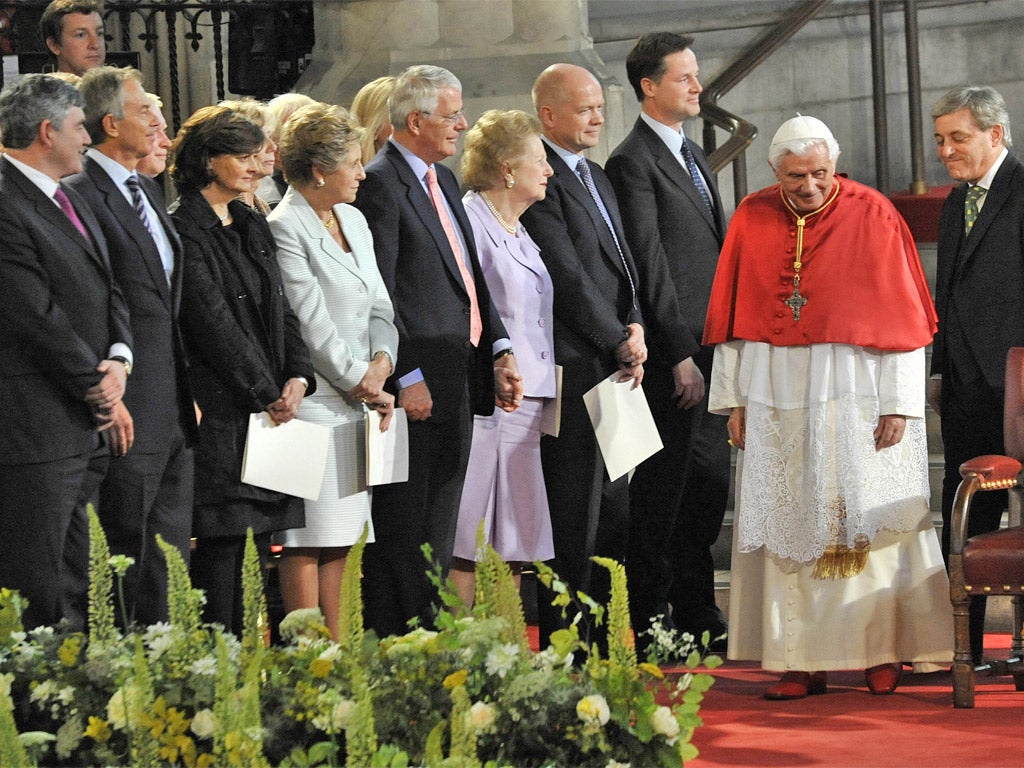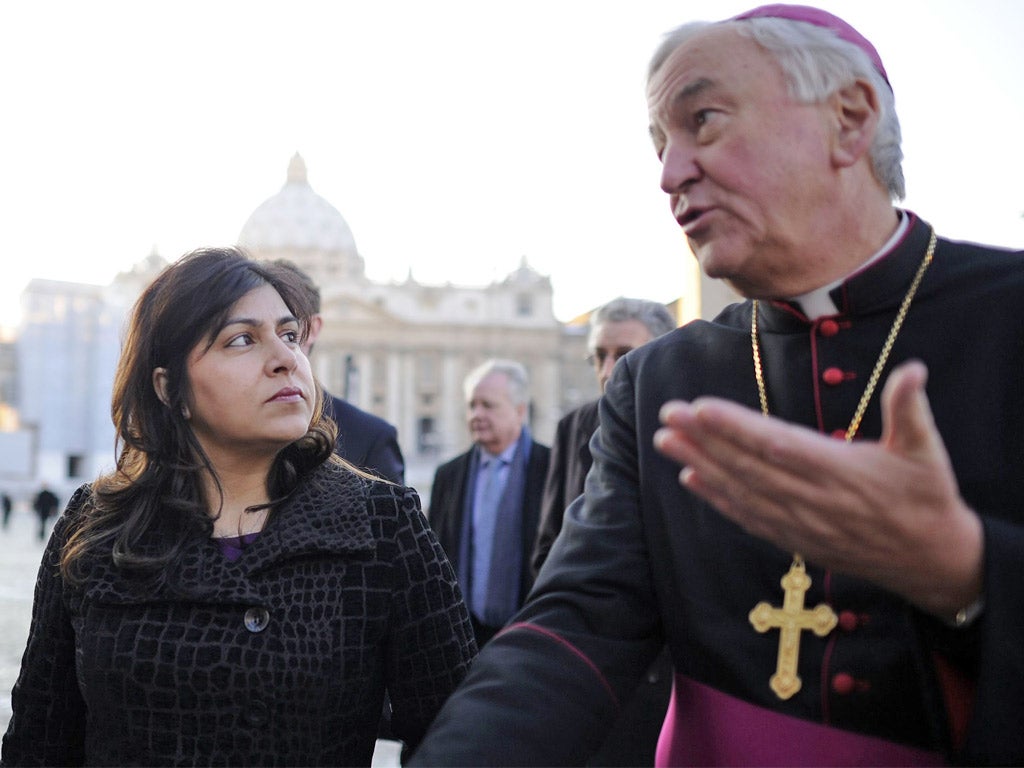Onward cabinet soldiers!
The Tory Minister for Faith, Baroness Warsi, has scant proof to support her claim that religion has been ushered back into Whitehall by Coalition 'Do Godders'

Your support helps us to tell the story
From reproductive rights to climate change to Big Tech, The Independent is on the ground when the story is developing. Whether it's investigating the financials of Elon Musk's pro-Trump PAC or producing our latest documentary, 'The A Word', which shines a light on the American women fighting for reproductive rights, we know how important it is to parse out the facts from the messaging.
At such a critical moment in US history, we need reporters on the ground. Your donation allows us to keep sending journalists to speak to both sides of the story.
The Independent is trusted by Americans across the entire political spectrum. And unlike many other quality news outlets, we choose not to lock Americans out of our reporting and analysis with paywalls. We believe quality journalism should be available to everyone, paid for by those who can afford it.
Your support makes all the difference.Two statements underpinned a speech earlier this week by Sayeeda Warsi, Minister for Faith. There was her claim that "faith is back at the heart of Government" and the implication that this is something for which we should be thankful, because "more often than not, people who do God do good". Both claims are highly questionable.
Similarly, her suggestion that the previous Labour administration was unusually "secular" is not supported by any great weight of evidence. Baroness Warsi is, of course, relying on Alastair Campbell's famous remark that "we don't do God" to prove her case that Labour allowed atheism to seep along Whitehall's corridors.
What that argument overlooks is that Campbell was spokesman for one of the most profoundly religious prime ministers of modern times. Tony Blair did not go to church for form's state: he went because he believed in prayer. Once freed from the restraints of office, he became a Roman Catholic, launched a Faith Foundation and on one occasion declared: "I've always been more interested in religion than in politics." There is no reason to doubt that he meant it. Campbell's much-quoted sound bite was delivered to dispel a suspicion that the Prime Minister was going to claim God as a patron of New Labour.
And anyone who thinks that secularism entered 10 Downing Street might do well to dig up the speech that Gordon Brown made at St Paul's Cathedral in March 2009, calling all the world's leading religions in aid of this appeal that "markets need morals". By contrast, we now have a Deputy Prime Minister, Nick Clegg, who – when asked – classifies himself as an atheist.
Lady Warsi has a few shreds of evidence to support her claim that God has been welcomed back into Whitehall, all very thin. Government ministers have been exhorting local councils not to abandon the practice of holding prayers at the start of council meetings, and the Government has defended a British Airways employee's right to wear a small crucifix while at work. But both those controversies arose from changing beliefs and legal rulings: they were nothing to do with the preceding Labour government.
Another piece of evidence proffered by Lady Warsi is that Michael Gove's free schools policy has enabled more faith schools to come into existence – true, but is a by-product of his programmes, not their central purpose. Gove has said he wants a higher standard of religious education in schools, but has not added RE to the core curriculum, as some religious believers wished that he would.
A favourite habit of Conservative ministers making a weak case is to claim that what they are saying is what Margaret Thatcher or Winston Churchill would have liked to hear. The Baroness invoked them both. Margaret Thatcher was indisputably religious and would sometimes use biblical allusions in defence of her policies. Winston Churchill spent the greater part of his career combating the godless creeds of Nazism and Communism, but there is scant evidence that he thought religion should govern domestic policy.
There are, also, a vast number of exceptions to Lady Warsi's generalisation that those who "do God do good". Osama bin Laden, the Taliban, the Lord's Resistance Army in Uganda and the perpetrators of the 11 September atrocities all claimed in their different ways to be doing God's work. When Bloody Mary had Protestants burned alive, or Oliver Cromwell drowned Ireland in Catholic blood, they, too, were "doing God".
Since 1688, British political leaders have for the most kept religion and politics apart – and for that may the Lord make us truly thankful.

Join our commenting forum
Join thought-provoking conversations, follow other Independent readers and see their replies
Comments